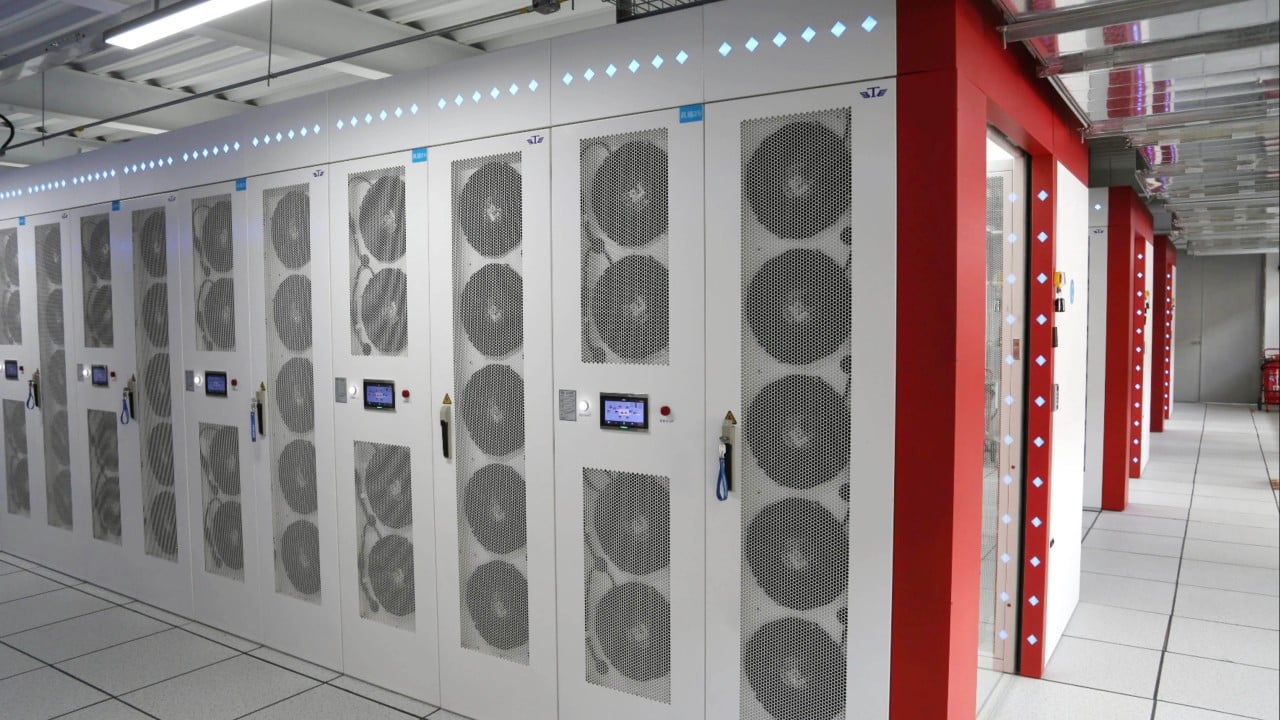Yajiang-1, a cutting-edge computing centre perched in the cradle of Tibetan civilisation along the roaring Yarlung Tsangbo River, is up and running as part of China’s plan to transform the so-called roof of the world into a strategic frontier for sustainable supercomputing.
Advertisement
The facility, the first major hub of the “Eastern Data, Western Computing” project on the Tibetan Plateau, takes advantage of the region’s extreme environment to make massive artificial intelligence (AI) training tasks – amounting to millions of processing hours a year – radically more energy efficient.
China plans to harness the natural cold, abundant solar power and innovative waste heat recovery to build more AI centres like Yajiang-1, which sits at an altitude of 3,600 metres (11,800 feet).
Located in Shannan, a city in Tibet autonomous region, the centre’s initial phase will deploy more than 256 advanced computing servers, delivering a total processing power of 2,000 petaflops – a measure of floating-point operations per second.
The facility, which was jointly developed by Tibet Yarlung Zangbo Computing Technology Company and the local government, aims to pioneer high-altitude digital economies.
“Yajiang-1 will catalyse frontier innovation across AI training, autonomous driving, smart healthcare and plateau ecosystem monitoring,” said Han Shuangshuang, general manager of the computing firm, in an interview with Science and Technology Daily published on June 20.
Advertisement
“Multiple partnerships are already established to advance these fields,” he told the official newspaper of China’s Ministry of Science and Technology.
China launched its Eastern Data, Western Computing strategy in 2022 to shift data processing from eastern regions, where computing needs are intensive, to renewable energy-rich western regions. The national initiative establishes data centres in the west to handle offline analytics, storage and non-urgent computing tasks from eastern China.


.jpg?itok=gnISwi22)